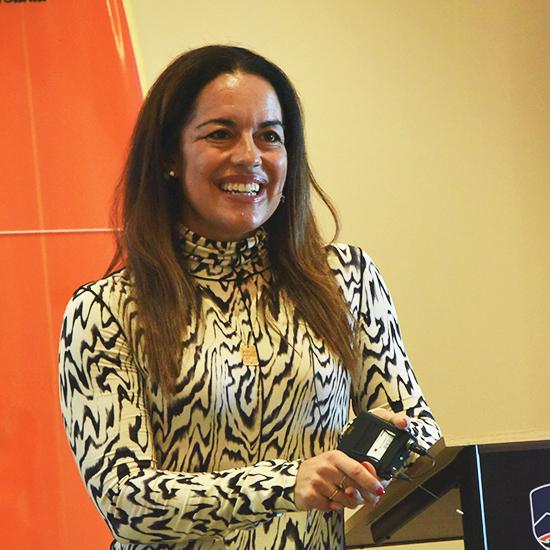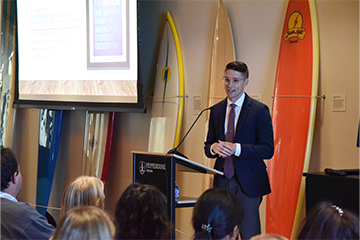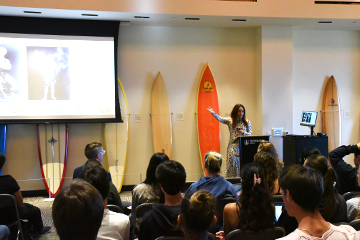Health Humanities Minor Launches at Seaver College with Inaugural Guest Lecture

Seaver College has unveiled a new health humanities minor available to undergraduate students beginning this 2025 fall semester. Health, illness, and caregiving for the sick are fundamental to the human condition, and this program offers an interdisciplinary study of this truth through the humanities and social sciences. Jonathan Riddle, Seaver College assistant professor of history, initiated the program’s formation. He now serves as its coordinator and teaches two courses within the curriculum.
 Riddle announcing the new health humanities program
Riddle announcing the new health humanities program
“As much as we need the sciences to illuminate the workings of the body and pioneer new therapies, we need history to explain how healthcare has evolved over time,” shares Riddle. “We need philosophy to help us navigate ethical dilemmas; we need literature to interpret the stories we tell about our health and illness; and we need the arts to show us new ways of seeing the body.”
On October 7, 2025, the program hosted its inaugural guest lecture in Payson Library's Surfboard Room with speaker Natalia Mehlman Petrzela, professor of history at the New School and certified fitness trainer. Her lecture, “A Fit Nation?: How America Became Obsessed with Exercise, But Physically Unfit,” traced the history of social and political attitudes toward fitness throughout the 20th century until present day.
Seaver College students in attendance expressed that this new health humanities program will be a vital resource to gaining a holistic understanding of medical and wellness concerns. Petrzela’s lecture touched on the evolution of Americans’ perceptions of healthcare’s parameters, including the societal shift from viewing exercise as a physical regimen to understanding it as a self-actualizing wellness practice. Such dialogue on matters of health and wellness will continue to unfold in health humanities classroom settings.
 Petrzela lecturing to a packed audience
Petrzela lecturing to a packed audience
Riddle shares that this new minor is a suitable adjunct to all academic fields offered at Pepperdine, though the program may be especially valuable for those on pre-health tracks of study who will benefit from a liberal arts framework particularly pertinent to their vocation.
Courses will span across a range of topics, from bioethics, multicultural literature, and anatomical elements of figure drawing to the history of medicine. Since the COVID-19 pandemic, health-related topics have emerged at the forefront of public awareness as they relate to social, cultural, and political realities. Health humanities is a growing domain within undergraduate education, supporting the minor’s offer as a timely and valuable introduction into Seaver College’s academic catalog.
“People are recognizing that we need holistic thinking within medical education,” says Riddle. “To this end, the program draws on the breadth of Seaver College offerings to redress fragmented understandings of the human person and the human experience."